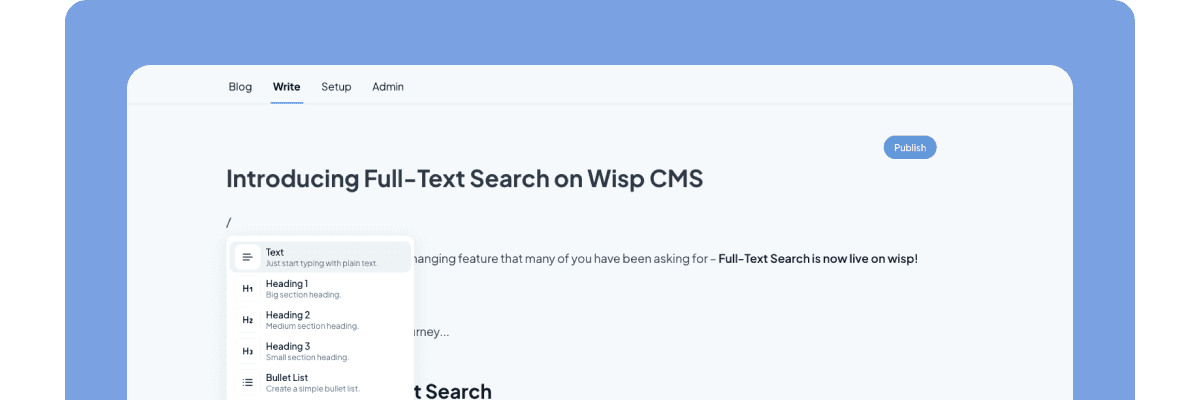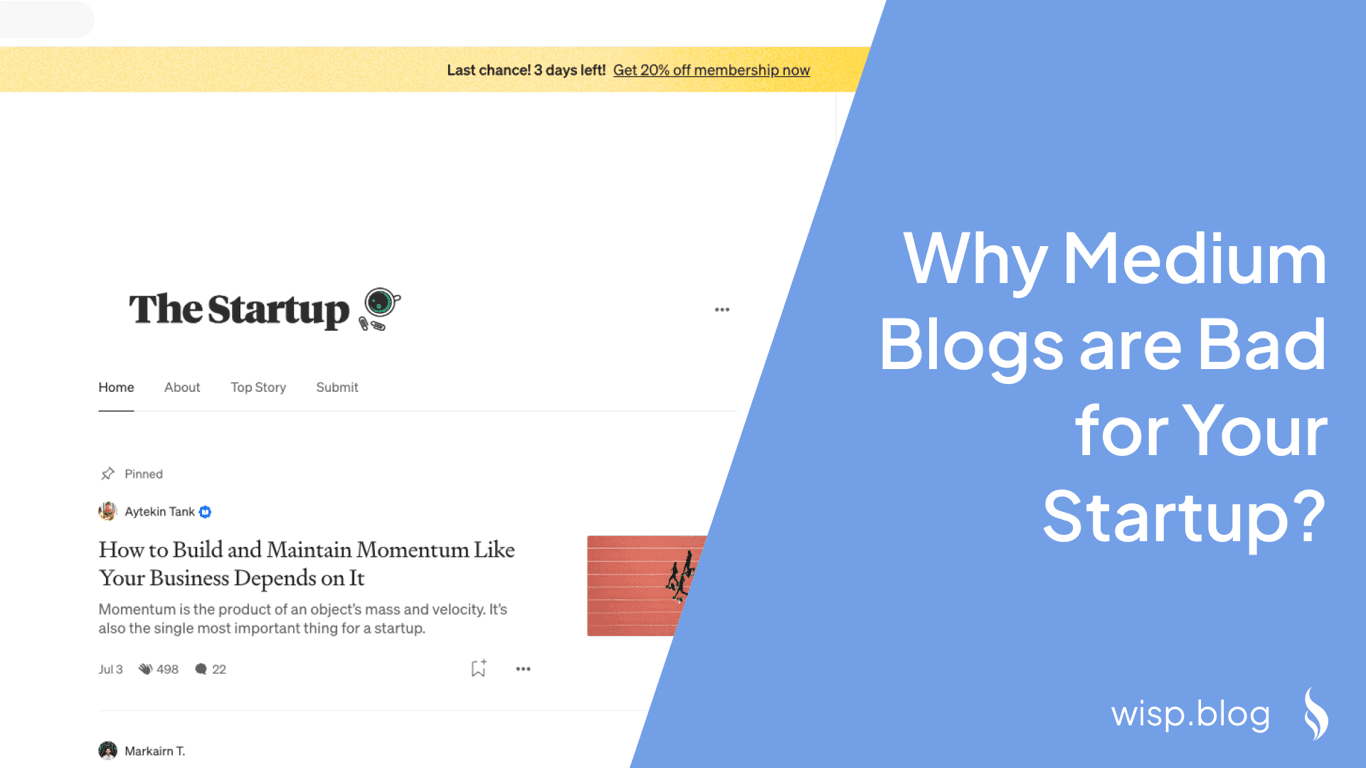
Launching a blog for your startup is a crucial step towards building an online presence, sharing valuable content, and engaging with your audience. While Medium is a popular blogging platform known for its clean design and active community, it may not be the best fit for every startup. In this article, we’ll explore why hosting your blog on Medium might not be ideal and discuss some compelling alternatives that offer better control, customization, and monetization options.
Why Medium Blogs Are Bad for Your Startup
While Medium provides a ready-made audience and an easy way to start blogging, there are several reasons why it might not be the best choice for your startup.
Search Functionality and User ExperienceMedium’s search functionality covers the entire platform. This means that visitors searching for your content may find posts from other authors, which can divert them away from your blog. Additionally, ads and links to other Medium stories can distract readers, compromising the user experience you want for your audience.
Customer LeakageHosting your blog on Medium can lead to customer leakage, where potential leads are diverted to other parts of Medium’s platform, reducing the likelihood of them engaging with your content.
Limited Customization and BrandingMedium offers limited ability to customize the appearance of your blog. This makes it challenging to create a unique brand identity, which is crucial for a startup trying to stand out in a competitive market.
Ownership and Control IssuesBy hosting your blog on Medium, you lack full ownership and control over your content. This can be problematic if Medium changes its policies or decides to remove your content for any reason.
Benefits of Hosting Your Own Blog
To avoid the drawbacks associated with Medium, many startups opt to host their own blogs. Here are some key benefits:
Content OwnershipHosting your blog on your own domain ensures you retain full ownership and control over your content, safeguarding it from arbitrary platform changes or removals.
Environment ControlYou have complete control over the environment where your content resides, from the design and layout to functionality and user experience. This allows you to create a tailored experience for your audience.
Brand IdentityHaving your own domain allows you to fully align the blog's design with your brand identity, offering a cohesive and professional appearance.
Customization OptionsYou have the freedom to use custom themes, layouts, and plugins to create a unique user experience that stands out.
Monetization FlexibilityWhen you own your blog, you can explore various monetization options, including affiliate marketing, sponsored posts, and direct sales, without restrictions.
Content VarietyIntegrate a wide range of content types such as videos, podcasts, and interactive elements to engage your audience better.
Platform IndependenceBy hosting your blog on your domain, you avoid dependency on third-party platforms, mitigating risks associated with platform policy changes or shutdowns.
Long-Term SustainabilityA self-hosted blog ensures that your online presence remains stable and sustainable, regardless of changes in the blogging industry.
Best Medium Alternatives to Launch a Blog for Your Startup
When considering alternatives to Medium, it's essential to evaluate each platform's features, ease of use, customization options, and monetization potential. Here are some of the best alternatives:
WispWisp CMS provides a user-friendly interface that simplifies the management of your blog content. It offers a range of powerful features, including a flexible content API and a JavaScript SDK, to enhance your blog's functionality. The Next.js Blog Starter Kit includes all the necessary components to set up your blog quickly and efficiently.
WordPressWordPress is highly customizable and versatile, making it a popular choice for bloggers. With an extensive library of plugins and themes, you can tailor your blog to meet your specific needs. While it has a steep learning curve and requires some technical skills, its robust SEO and marketing tools make it a strong contender.
GhostGhost is a self-hosted, open-source CMS that gives you full control over your blog. It's highly customizable and offers advanced SEO tools and integrated newsletter functionality. However, it requires technical knowledge for setup and maintenance.
SubstackSubstack is an excellent platform for creating monetized email newsletters. It has a simple user interface and allows direct reader connections. Substack takes 10% of earnings from subscriptions, making it suitable for writers who want to build a subscriber base.
Why Wisp is the Best Alternative for Startups
While all the alternatives mentioned offer unique features and benefits, Wisp stands out as the best option for startups. Here’s why:
Simplified ManagementWisp provides a user-friendly interface that simplifies the management of your blog content, allowing you to focus on creating valuable content for your audience.
Robust FeaturesWisp offers powerful features, including a flexible content API and a JavaScript SDK, to enhance your blog's functionality and provide a seamless user experience.
Easy SetupThe Next.js Blog Starter Kit from Wisp includes all the necessary components to set up your blog quickly and efficiently. The detailed video walkthrough ensures you can get your blog up and running with ease.
Flexibility and CustomizationWisp allows you to tailor your blog to meet your specific needs, offering a range of customization options to create a unique and engaging user experience.
Conclusion
Choosing the right platform to launch your blog is crucial for your startup's success. While Medium offers a ready-made audience and an easy way to start blogging, its limitations in customization, control, and monetization make it less ideal for startups. Platforms like WordPress, Ghost, Substack, Wix, Vocal Media, HubPages, Squarespace, and Weebly offer excellent alternatives, each with unique features and benefits. However, Wisp stands out as the best option for startups, providing simplified management, robust features, easy setup, and flexibility. Explore Wisp for your startup blog needs and take your online presence to the next level.



